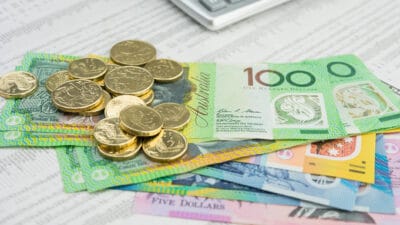BHP Group Ltd (ASX: BHP) shares are among the most widely held on the ASX share market. It's the biggest ASX share. But, at this current stage, is the resources giant an opportunity hiding in plain sight?
BHP currently has a market capitalisation of around $235 billion according to the ASX.
There has been a lot going on with the global share market this year, with higher interest rates and strong inflation. For the ASX share, it has been exposed to rapidly changing commodity prices.
As iron ore prices fell, coal prices went up, which helped cushion some of the earnings hit for the business.
Here are some of the things that I'm keeping in mind with BHP shares at the moment.
2 reasons to buy BHP shares right now
Big dividend
Historically, the ASX share market has returned an average of 10% per annum over the decades.
BHP's expected dividend could make up a significant portion of the return from BHP shares over the next year or so.
According to Commsec, the ASX share could pay an annual dividend per share of $3.13 in 2023. This would result in a grossed-up dividend yield of 9.7% in FY23, or 6.8% excluding the franking credits.
I don't know what the BHP share price is going to do in 2023, but the dividend could provide an attractive level of investment returns.
China reopening
China has been implementing a number of changes when it comes to its COVID rules. People now don't need to present a negative COVID-19 test to enter a certain place or do an activity, such as taking public transport in some cities.
The Asian superpower also has plans to cut its quarantine requirements for overseas travellers in January, according to Bloomberg.
BHP can benefit if there is more economic activity in the country. It sells a number of commodities that China uses in large amounts, such as copper, as well as iron. The eventual acquisition of OZ Minerals Limited (ASX: OZL) could be a good boost for the company's copper earnings.
2 reasons not to buy BHP shares
Best the resource prices are going to be?
When resource prices go up, it's a great bump for the profitability of the business. Mining costs generally don't change much from month to month. However, if the resource price jumps then this largely adds to net profit after tax (NPAT), aside from paying more to the government.
The iron ore price has been climbing in recent weeks, but perhaps this has been because investors are anticipating the Chinese reopening. How much stronger can investor excitement build if the market is already pricing in a reopening?
Coal prices may have already peaked as well, with prices somewhat calming down, though they are still elevated.
Unless there is a sustained stronger demand for iron from China, could we have seen the strongest that the resource prices are going to be in FY23?
Bloomberg has also reported that China's streets are more deserted than during lockdowns. Reportedly, traffic in China's biggest cities has dropped to the lowest since the Lunar New Year holiday. Will there be strong demand for steel/iron if the general population aren't as active as they were before?
Elevated BHP share price
The BHP share price has gone on a strong run, rising by around 20% in two months.
With how cyclical resource prices are, I think paying a good price is important to give a margin of safety so that investors have a better chance of there not being capital losses on the investment.
The BHP share price is at almost the highest level it has been since it divested its petroleum business to Woodside Energy Group Ltd (ASX: WDS).
I don't know what's going to happen next. But, we don't have to act today. A lot of being successful with investing is having patience – with both owning the investment and waiting until the company is at a better price.
In my opinion, the BHP share price is a bit too high to think it's a buy. I'd wait for a price that's at least below $40.









